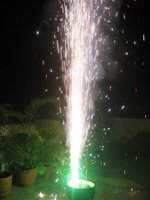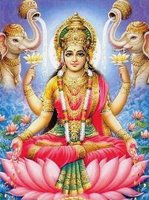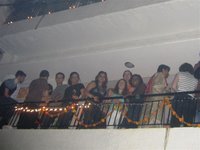


World War II veterans and domestic pets alike cowered in corners on Saturday night as Delhi simultaneously exploded with Diwali fireworks. We  sat on the terrace awe struck as all around us the night lit up with the most phenomenal, continuous, 360 degree, 8 hour display of fireworks. Every single family came into the streets and lit an array of fireworks. Hotels vied to outdo each other in the magnitude of their displays. I was completely and utterly blown away (sorry, I couldn’t resist). We even put on our own display of rockets, flowers and the most gigantic sparklers you have ever seen. By about 10pm, a thick blanket of smoke blanketed the city from all the festivities. Unbelievably there were fewer fireworks this year than they have been for the last three years. I can’t imagine how there could possible have been any more!
sat on the terrace awe struck as all around us the night lit up with the most phenomenal, continuous, 360 degree, 8 hour display of fireworks. Every single family came into the streets and lit an array of fireworks. Hotels vied to outdo each other in the magnitude of their displays. I was completely and utterly blown away (sorry, I couldn’t resist). We even put on our own display of rockets, flowers and the most gigantic sparklers you have ever seen. By about 10pm, a thick blanket of smoke blanketed the city from all the festivities. Unbelievably there were fewer fireworks this year than they have been for the last three years. I can’t imagine how there could possible have been any more!

For the last week the streets glittered with vendors selling diwali boxes and shops windows screamed out their Diwali specials as everyone geared up to celebrate the festival of light. Every corner of every household was lit up by candles this weekend to ensure that Laxmi, the Goddess of Wealth felt welcome to enter. Even at work we had a Pandit in who did a puja (blessing) over the accounting books of the company to ensure wealth and prosperity for the upcoming year. For many smaller companies, the financial year ends at Diwali because it is considered the most auspicious time to start a business. Nuts, sweet meats (not actually meat strangely) and dried fruits abound and Bengali sweet shops double their turnover for the year. Diwali, like Christmas, is a family time. In the absence of family a whole lot of us expats joined together for a huge potluck lunch followed by a massive party.
enter. Even at work we had a Pandit in who did a puja (blessing) over the accounting books of the company to ensure wealth and prosperity for the upcoming year. For many smaller companies, the financial year ends at Diwali because it is considered the most auspicious time to start a business. Nuts, sweet meats (not actually meat strangely) and dried fruits abound and Bengali sweet shops double their turnover for the year. Diwali, like Christmas, is a family time. In the absence of family a whole lot of us expats joined together for a huge potluck lunch followed by a massive party.
 sat on the terrace awe struck as all around us the night lit up with the most phenomenal, continuous, 360 degree, 8 hour display of fireworks. Every single family came into the streets and lit an array of fireworks. Hotels vied to outdo each other in the magnitude of their displays. I was completely and utterly blown away (sorry, I couldn’t resist). We even put on our own display of rockets, flowers and the most gigantic sparklers you have ever seen. By about 10pm, a thick blanket of smoke blanketed the city from all the festivities. Unbelievably there were fewer fireworks this year than they have been for the last three years. I can’t imagine how there could possible have been any more!
sat on the terrace awe struck as all around us the night lit up with the most phenomenal, continuous, 360 degree, 8 hour display of fireworks. Every single family came into the streets and lit an array of fireworks. Hotels vied to outdo each other in the magnitude of their displays. I was completely and utterly blown away (sorry, I couldn’t resist). We even put on our own display of rockets, flowers and the most gigantic sparklers you have ever seen. By about 10pm, a thick blanket of smoke blanketed the city from all the festivities. Unbelievably there were fewer fireworks this year than they have been for the last three years. I can’t imagine how there could possible have been any more!
For the last week the streets glittered with vendors selling diwali boxes and shops windows screamed out their Diwali specials as everyone geared up to celebrate the festival of light. Every corner of every household was lit up by candles this weekend to ensure that Laxmi, the Goddess of Wealth felt welcome to
 enter. Even at work we had a Pandit in who did a puja (blessing) over the accounting books of the company to ensure wealth and prosperity for the upcoming year. For many smaller companies, the financial year ends at Diwali because it is considered the most auspicious time to start a business. Nuts, sweet meats (not actually meat strangely) and dried fruits abound and Bengali sweet shops double their turnover for the year. Diwali, like Christmas, is a family time. In the absence of family a whole lot of us expats joined together for a huge potluck lunch followed by a massive party.
enter. Even at work we had a Pandit in who did a puja (blessing) over the accounting books of the company to ensure wealth and prosperity for the upcoming year. For many smaller companies, the financial year ends at Diwali because it is considered the most auspicious time to start a business. Nuts, sweet meats (not actually meat strangely) and dried fruits abound and Bengali sweet shops double their turnover for the year. Diwali, like Christmas, is a family time. In the absence of family a whole lot of us expats joined together for a huge potluck lunch followed by a massive party. 


1 comment:
You think Indian Diwali matches up to Guy Fawkes night? 5th Nov coming up pretty soon eh. Though the bonfires in north-India would happen on 13th Jan. That festival's called Lohri. You wouldn't be here to see that. Pity.
Post a Comment